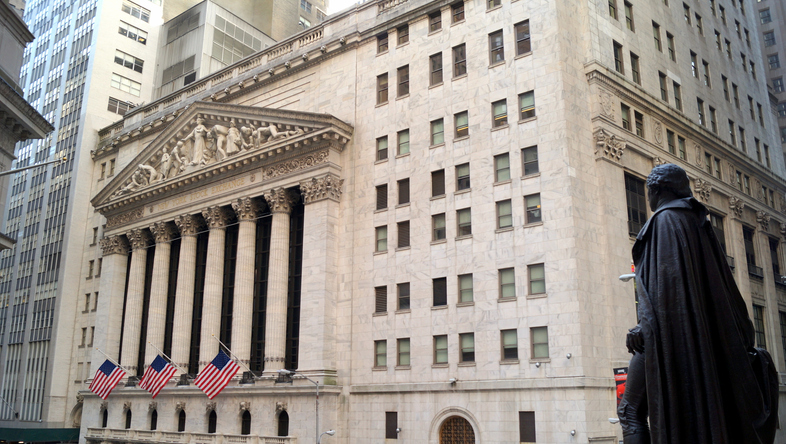May 15, 2025

This information is provided for educational purposes only by Kohn, Kohn & Colapinto and does not constitute legal advice. No attorney-client relationship is created by accessing this content. Laws and regulations may change, and this material may not reflect the most current legal developments. If you believe you have a whistleblower claim, consult a qualified attorney to discuss your specific circumstances.
Market manipulation is a type of activity that is carried out by individuals or groups in an attempt to interfere with the normal operation of financial markets. This can be done for a variety of reasons, including to influence the price of a particular security or to create an artificial sense of demand for a certain asset.
Former SEC Commissioner Allison Herren Lee Enhances Kohn, Kohn & Colapinto’s Vigilance Against Market Manipulation
Introducing a powerful ally in the fight against market manipulation, Kohn, Kohn & Colapinto is proud to announce Allison Herren Lee, former SEC acting chair and commissioner, as our newest Of Counsel. Leveraging her deep insights into the Dodd-Frank Act and SEC Whistleblower Program, Lee is primed to robustly defend whistleblowers and facilitate their pursuit of rewards.
Types of Market Manipulation
There are many ways that market manipulation can be carried out, but some common tactics include spreading false or misleading information about a company or its products, creating fake demand for a security by placing large orders that are never executed, or engaging in insider trading. In the international market, manipulation can also occur through the use of foreign exchange manipulations or by manipulating the prices of commodities such as oil and gold.
Other commodities manipulation may include:
- Spoofing: This is when a trader places a large order for a particular commodity, only to cancel it before it is executed. This creates the illusion of a strong demand for the commodity and can lead other traders to place their own orders, which the trader can then take advantage of by executing their own orders at a better price.
- Pump and dump: This is when traders or market participants hype up a particular commodity in an effort to drive up its price. This is often done through false or exaggerated statements about the commodity’s potential value or performance, and can lead to price spikes that can be exploited by traders who are in on the scheme.
- Cornering the market: This is when a trader or group of traders amass a large enough position in a particular commodity to have significant control over its price. This allows them to manipulate the price by buying or selling large quantities of the commodity, creating artificial supply and demand conditions.
- Bear raids: This is when traders deliberately sell a large quantity of a commodity in an attempt to drive down its price. This can be done in an effort to create a short position or to drive out other traders who may be holding long positions.
- Wash trading: This is when a trader or group of traders engage in fake trading activity to create the appearance of liquidity and activity in a particular commodity. This can be done to create the impression of a strong demand for the commodity and to drive up its price.
Overall, market manipulation is a serious concern in the financial world because it can have serious consequences for investors and the market as a whole. It is important for regulators and law enforcement agencies to be vigilant in identifying and addressing instances of market manipulation.
Whistleblowers can receive rewards for reporting market manipulation. Under the Dodd-Frank Wall Street Reform and Consumer Protection Act, the U.S. Securities and Exchange Commission (SEC) offers rewards to individuals who provide information that leads to successful enforcement actions resulting in monetary sanctions of over $1 million. The amount of the reward is typically between 10-30% of the monetary sanctions recovered by the SEC.
Example Market Manipulation Cases
There have been many famous cases of market manipulation in securities and commodities. One example is the so-called “cornering” of the silver market by the Hunt brothers in the late 1970s. The brothers, Nelson Bunker Hunt and William Herbert Hunt, attempted to corner the market by buying up large quantities of silver in an effort to drive up prices. However, their scheme ultimately failed and resulted in significant financial losses for the brothers and many other investors.
- Enron scandal: In 2001, the energy company Enron manipulated its financial statements to hide its true financial state and inflate its stock price. This led to the company’s bankruptcy and the indictment of several top executives.
- Libor scandal: In 2012, it was revealed that several banks had manipulated the London Interbank Offered Rate (Libor), a benchmark interest rate used in financial markets, to benefit their own positions.
- Goldman Sachs and Abacus: In 2010, Goldman Sachs was charged with fraud for selling a mortgage-backed security to investors without disclosing that the securities were selected by a hedge fund that was betting against them.
- Wells Fargo fake accounts scandal: In 2016, it was revealed that Wells Fargo employees had opened millions of fake accounts without customers’ knowledge to meet sales targets and receive bonuses.
- Volkswagen emissions scandal: In 2015, Volkswagen was found to have used illegal software to manipulate emissions tests on its diesel vehicles, leading to huge fines and legal consequences for the company.
Whistleblower Rewards for Reporting Market Manipulation
Yes, whistleblower awards are available for reporting market manipulation. The Securities and Exchange Commission (SEC) and the Commodity Futures Trading Commission (CFTC) both have whistleblower programs that offer financial rewards for individuals who provide information that leads to successful enforcement actions related to market manipulation. The maximum award for a SEC whistleblower is 30% of the monetary sanctions recovered, while the maximum award for a CFTC whistleblower is 10-30% of the monetary sanctions recovered.






